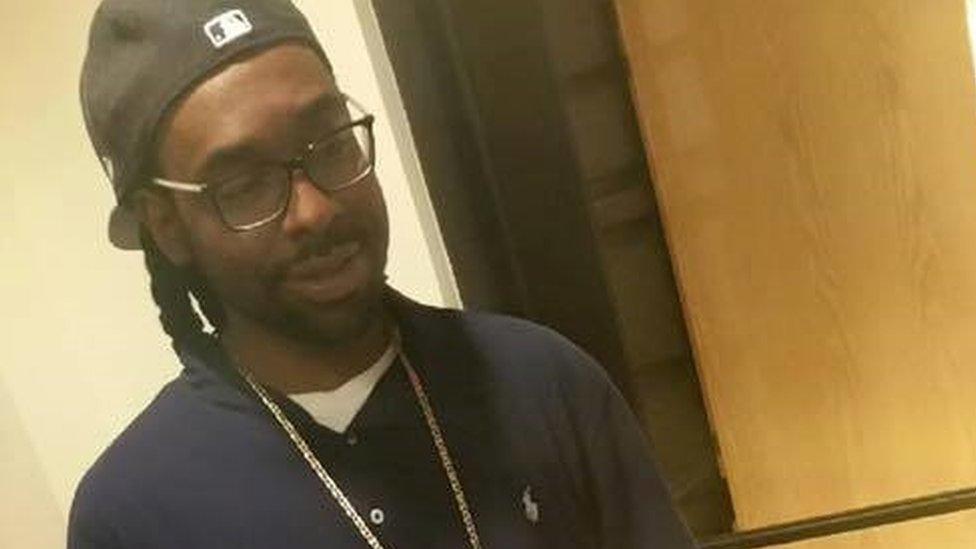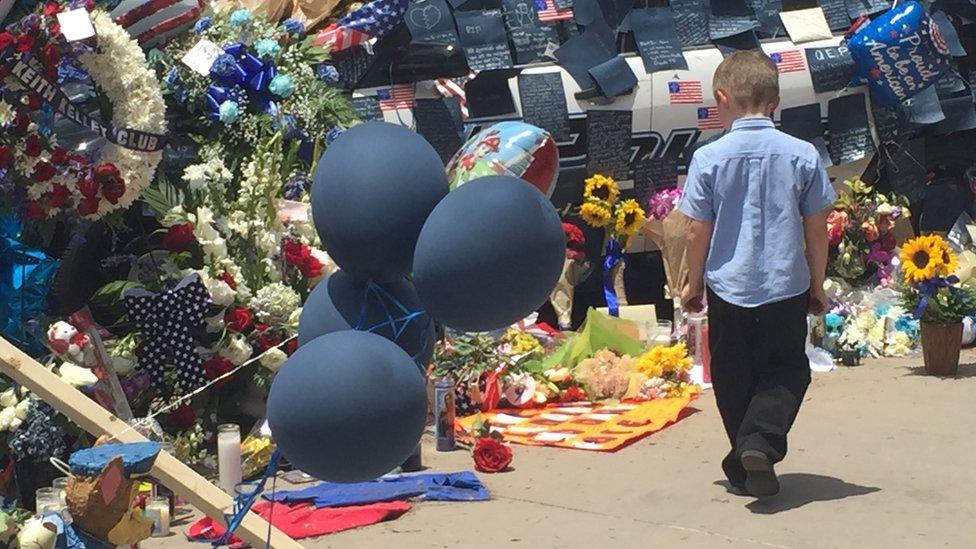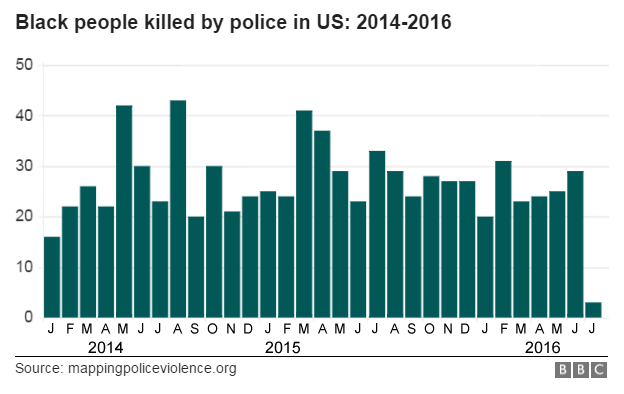US police shooting: Philando Castile's partner tells BBC she wants change
- Published
Diamond Reynolds talks about her partner Philando Castile, who was shot dead by police in Minnesota
The woman who live-streamed US police killing her black partner Philando Castile in the state of Minnesota last week says she wants changes in the law.
Diamond Reynolds says the powers of those whose job it is to protect the people need to be curtailed.
On Tuesday, President Barack Obama is visiting Dallas, where five police officers were killed by a black man.
It followed protests against the police killing of Mr Castile and Alton Sterling in Baton Rouge a day earlier.
In an interview with the BBC, Diamond Reynolds, who is also known as Lavish, recounted the moment her partner was killed, and why she chose to film it.
"I was thinking about our rights, right there at that very second. I was thinking about whether or not people were gonna believe what happened. Because I was still at disbelief myself," she told BBC 5 Live.
"You shot four bullets into him, sir" - Philando Castile's girlfriend, Lavish Reynolds, live-streamed the aftermath of the shooting
"Right then and there I knew I wanted to make a change," she said.
She says changes are needed to laws applying to police.
"If we can't turn to our higher power, you know officers and things of that sort, then who are we to turn to if people that are supposed to be protecting us, are the ones that are assassinating us?"

Philando Castile was a school cafeteria supervisor
Mr Castile had been stopped in Falcon Heights, a suburb of St Paul, because the car had a broken rear light, Ms Reynolds said.
Before he was shot, he had told the officer that he was licensed to carry a concealed gun and had one in his possession.
Police have started an investigation and the officer involved has been put on leave.
'Deepest condolences'
Philando Castile's and Alton Sterling's deaths follow a long line of high-profile incidents involving African-Americans dying at the hands of the police, and have led to demonstrations across US cities.
Last Thursday, during a protest organised by Black Lives Matter in Dallas, Micah Johnson, 25, launched a revenge attack, killing five police officers and wounding seven more, before being killed by a bomb detonated by a police robot.

Flowers in memory of the murdered Dallas officers have been piling up
Diamond Reynolds said resorting to retribution is not a solution.
"I absolutely have the deepest condolences for those families that have lost their loved ones in Dallas and all the officers that were defending us that lost their lives trying to defend us," she said.
President Obama is due to speak at an interfaith memorial service in Dallas later on Tuesday.


Police killings that scar the US
Walter Scott - unarmed and shot in the back as he ran away from an officer in North Charleston, South Carolina, in April 2015. Former officer Michael Slager facing murder charge
Laquan McDonald - 17-year-old was holding a knife but appeared to be moving away from police in Chicago when shot 16 times in 2014. Officer Jason Van Dyke denies murder charge
Michael Brown - 18-year-old shot at least seven times in Ferguson, Missouri, in August 2014, sparking nationwide protests. Officer Darren Wilson cleared of wrongdoing
Eric Garner - died after being placed in a chokehold by New York police while selling cigarettes in July 2014. Grand jury decides against charges, police disciplinary action taken against supervising officer Sgt Kizzy Adonis

What goes through a policeman's head before he shoots?
Ms Reynolds says she watches the news every day and prays for people who lose their lives and who don't get justice. But she never thought it could be her.
"And now I'm left to sit here and think 'Why me? Why us? Why his family? Why did this police officer do this? Why can't these laws change? Why can't we get justice? Why why why why why?"